
Dhanapal Govindarajulu
Postgraduate Researcher, Global Development Institute, University of Manchester
Dhanapal is a postgraduate researcher at the Global Development Institute, the university of Manchester. His current research is on examining social and ecological impacts of forest restoration in India.
He has worked as a researcher on forest ecology at the Indian Institute of Science and has conducted studies on forest management funded by international organisations like DFID, USAID and the Tenure Facility. His current research interests include policy analysis, spatial mapping of forests and exploring the causal relations between forestry investments, forests and livelihood.
His past research interests are also on urban ecology, climate change adaptation and resilience.
Dhanapal has a masters degree in Environment Management from the Forest Research Institute, Dehradun.
Less ![]()
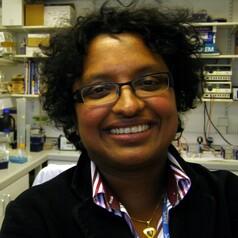
Dharani Hapangama
Professor of Gynaecology/Consultant Gynaecological Surgeon, University of Liverpool
Dharani K Hapangama is Professor of Gynaecology and the deputy head of the department of Women’s & Children’s health, with an interest in translational endometrial research. She is a Consultant Gynaecologist at Liverpool Women’s Hospital and her research group works on normal regeneration of the human endometrium, endometrial epithelial stem cells and telomerase/telomere biology in the context of endometrial disease such as 'endometriosis', peri-conceptional pathology and 'endometrial cancer'.
The human endometrium is a major theme underpinning my research. My group focuses on the understanding of three dimensional organisation, function, and regeneration of the human endometrium in order to address major unmet clinical needs in gynaecology. We therefore centre our research on pathologies related to menstrual related symptoms, fertility/ early pregnancy and endometrial cancer.
Our research is funded by MRC, Wellbeing of Women’s, NIHR and North West Cancer Research.
Our research utilises a wide range of research methodology that has been established in our labs and supported by our expert national and international collaborators including; complex 3D in vitro tissue culturing; endometrial histology, immunohistochemistry, immuno-fluorescence, in situ hybridisation, laser capture micro-dissection, NMR, mass-spectroscopy and Raman spectroscopy, microarrays, RNA sequencing, imaging mass-spectroscopy as well as non-laboratory methods including systematic reviews and system biology.
Less ![]()
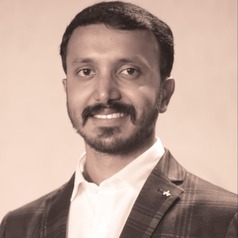
Dheeraj Paramesha
Lecturer in Intelligence, Security and Policing, School of Criminology, University of Hull
I teach Intelligence, Policing, and Security in the Department of Criminology at Hull. I have a PhD in Intelligence Studies from the University of Leicester. I am the author of the book “India’s Intelligence Culture and Strategic Surprises: Spying for South Block” published by Routledge, which is the first academic work on India’s foreign intelligence culture.
Most of my research work is on strategic intelligence for foreign policymaking, military planning, and conflict management. I also wrote the state intelligence training manual of Karnataka state police and conducted training courses in counterterrorism and counter-radicalisation.
Less ![]()

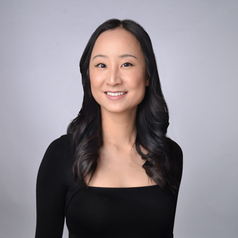
Di Rao
PhD Student, Political Science, University of Waterloo
Di is a PhD Student at the University of Waterloo. She/her has previously completed an Honours Bachelor of Arts and Masters of Arts in Political Science at the University of Toronto. Her research work focuses on the intersection of Charter rights, public administration, and race.
Less ![]()

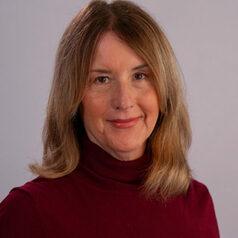
Diana Blaine
Professor of Gender and Sexuality Studies, USC Dornsife College of Letters, Arts and Sciences
Dr. Blaine teaches in the Department of Gender and Sexuality Studies where she also serves as Director of Undergradute Studies. Her research and publications examine representations of death in media, including analysis of corpses in advertising, literature, news, films and television. Besides thanatology, Blaine studies other representations of gender and the body, including abortion, yoga, and celebrity. For better or worse, she sees everything through the lens of mortality.
Less ![]()

Diana Ibanez-Tirado
Senior Lecturer in Anthropology, University of Sussex
Diana is a social anthropologist with a wide range of regional and linguistic expertise, and an inter-disciplinary approach. She obtained a PhD and an MA in social anthropology from SOAS, University of London, a BA in International Relations (UNAM), and an MA in Middle East Studies with Arabic Language (El Colegio de Mexico), and diplomas in Russian Language and Culture from UNAM and the Pushkin State Russian Institute in Moscow.
Diana’s early research documented how people in southern Tajikistan experience time, and then she worked on theorising different forms of transnational mobility and migration in Asia. Based on fieldwork conducted in China, Ukraine, Russia, Turkey and Tajikistan, her work with Russian and Persian speaking traders has been published in the journals Ethnography; Current Sociology; Central Asian Survey, History and Anthropology, and the Cambridge Journal of Anthropology.
From her research on temporality, and then mobility and trade, Diana developed an interest in the journeys people embark upon when searching for healing, medical treatments, and management of ill health. Since 2023, she has been investigating the journeys that Britons follow to seek dental services in Turkey, a phenomenon related to the "crisis" of NHS dentistry in the UK.
Less ![]()

Diana Kadouch
Praticien Hospitalier, Hôpital Bichat, Service de Diabétologie-Nutrition, AP-HP, Chargée de cours au sein du DU de nutrition, Université Paris Cité
Less ![]()
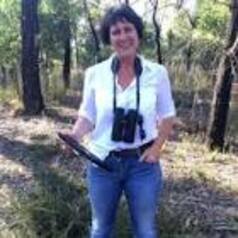
Diana Kuchinke
Lecturer in Ecology, Federation University Australia
My research is on the impact of fire on birds in the heathy dry forests of central Victoria.
Less ![]()
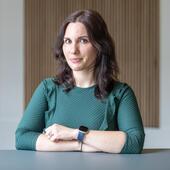
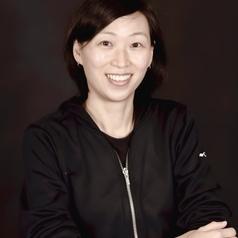
Diana Mok
Associate Professor of Real Estate Finance and Economics, Western University
My research interests are broadly defined in the realm of real estate and urban economics, with a focus on housing and urban development. Most of my research studies have been applied, empirical studies of urban phenomena drawn from existing theories, and I often adopt a spatial lens to study my research questions. Specifically, my research has evolved and developed around three themes, intertwined, and with a spatial focus: risk, real estate, and urban growth. I seek to understand the interrelatedness among risk, the real estate market, and how the real estate market affects people’s economic activities in everyday life.
Less ![]()

Diana Mok
Associate Professor of Real Estate Finance and Economics, Western University
My research interests are broadly defined in the realm of real estate and urban economics, with a focus on housing and urban development. Most of my research studies have been applied, empirical studies of urban phenomena drawn from existing theories, and I often adopt a spatial lens to study my research questions. Specifically, my research has evolved and developed around three themes, intertwined, and with a spatial focus: risk, real estate, and urban growth. I seek to understand the interrelatedness among risk, the real estate market, and how the real estate market affects people’s economic activities in everyday life.
Less ![]()

Diana Tolmie
Senior Lecturer of Professional Practice, Griffith University
Dr Diana Tolmie is Senior Lecturer of Professional Practice at the Queensland Conservatorium Griffith University, D’Addario International Artist, and Chair of the Juror Council for the Australian Women in Music Awards. Passionately teaching and researching performance, pedagogy, musicians’ health and vocational preparation, her ongoing nation-wide investigation in the Transferable Skills of Musicians has seen her deliver a TEDx talk and guest on ABC radio. Her teaching excellence has been nationally recognised by: a University Australia Citation for Outstanding Contributions to Student Learning (2018), a 2021 Australian Universities Award for Teaching Excellence (Creative Arts) - the most recognised national teaching award in her field, and more recently the 2023 AFR Higher Education (Employability) Award. She continues to lead an exciting life as a freelance woodwind specialist in a multitude of genres, performing in countless interstate and international tours, plus appearing in live radio and television broadcasts as performer and speaker. For more information please visit https://www.linkedin.com/in/diana-tolmie/
Less ![]()
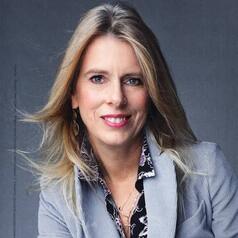
Diána Ürge-Vorsatz
Professor of Environmental Sciences, Central European University
Diana Ürge-Vorsatz is a Professor at the Department of Environmental Sciences and Policy at the Central European University (CEU).
She was elected as Vice Chair of the Intergovernmental Panel on Climate Change in July 2023. In the Sixth Assessment cycle she served as Vice-Chair of IPCC’s Working Group III. (Mitigation). She was a Coordinating Lead Author in both the Fourth and Fifth Assessment Reports (AR4 and AR5) of the IPCC. She is VicePresident of the Hungarian Scientific Panel on Climate Change. She holds a PhD from the University of California,Berkeley, and UCLA and worked in Lawrence Berkeley National Laboratory.
She has worked on and directed many research projects for organisations including the European Commission, the European Parliament, the Global Environment Facility, UNEP, the World Energy Council, OECD, and the World Bank. She has been serving on the Governing and Advisory boards of several organizations and companies. She is regularly invited to high-level review panels, such as for the Lawrence Berkeley National Laboratory, the EU’s Joint Research Centre, and several panels in the European Research Council.
Less ![]()
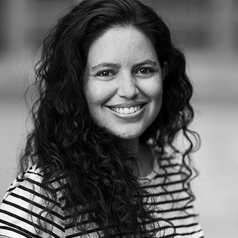
Diana Vela-Almeida
Assistant Professor in Political Ecologies of Sustainability, Utrecht University
Diana Vela Almeida is an assistant professor at the Copernicus Institute of Sustainability, Utrecht University. She holds a PhD in natural resource science from McGill University. Diana has over ten years of experience in studies of the extractive industries in developing countries and has conducted extensive field research in Ecuador, Peru and Indonesia. She has written about resource geographies, conflict and development, participation in extractive governance and more recently, the role of the extractive industries in the energy transition. She led the policy report on the sustainability indicators for the metallic mining industries in the Andean countries prepared for the UN Economic Commission for Latin America and the Caribbean, ECLAC. Diana is also a senior researcher at the Norwegian University of Science and Technology where she leads the project “Environmental Policy Instruments across Commodity Chains” in Indonesia, which aims to map the global value chains of nickel and tin that connect the multiple territories of extraction with the European market, and the synergies, tradeoffs and chokeholds of the their global governance systems. The results of this study aim to inform a policy report for the European Commission on the Proposal on Corporate Sustainability Due Diligence.
Less ![]()
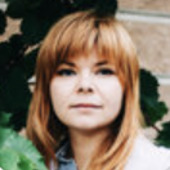
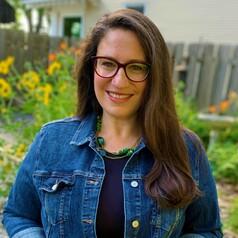
Diana D'Amico Pawlewicz
Associate Professor of Education Foundations & Research, University of North Dakota
Diana D’Amico Pawlewicz, Ph.D. is a historian of education policy and associate professor at the University of North Dakota. Her research considers education reform as social reform and explores the ways schools have served as both conduits to and barriers for social justice. Dr. D’Amico Pawlewicz is the author of Blaming Teachers: Professionalization Policies and the Failure of Reform in American History; the editor of Walkout!: Teacher Militancy, Activism, and School Reform; many peer reviewed articles in outlets including History of Education Quarterly, Harvard Education Review, and AERJ; and a dozen essays in national outlets including TIME, Washington Post, and San Francisco Chronicle. She has received funding to support her research from the Spencer Foundation as well as other organizations. Dr. D’Amico Pawlewicz also served as an editor of Made by History published by TIME Magazine where she worked to bring complex historical ideas to broad audiences. Diana's currently at work on her next book project – Panic at the Schoolhouse! How the Politics of Fear Shaped American Public Education and Polarized the Nation, 1945 to the Present.
Less ![]()
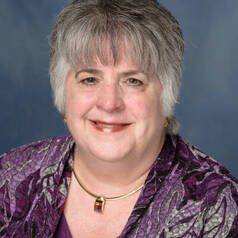
Diana J. Wilkie
Professor of Nursing, University of Florida
Diana Wilkie, PhD, RN, FAAN, joined UF in 2015 as the Prairieview Trust – Earl and Margo Powers Endowed Professor in the Department of Biobehavioral Nursing Science. She is also the director of the Center for Palliative Care Research & Education and co-director of the Florida-California Cancer Research, Education and Engagement (CaRE2) Health Equity Center.
Less ![]()
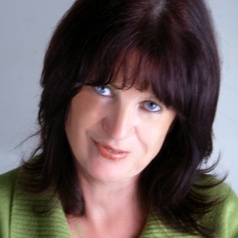
Diane Charleson
Senior Lecturer in media School of Arts Australian Catholic University, Australian Catholic University
Dr Diane Charleson is currently a Senior Lecturer at the Australian Catholic University Melbourne Australia She has vast experience as a filmmaker and is presently practicing as a video installation artist and documentary maker. Her research interests are in practice based research, research of the self, memory, identity , video installation, documentary and new media. Her most recent book published by Palgrave is Filmmaking as Research : screening Memories
Less ![]()
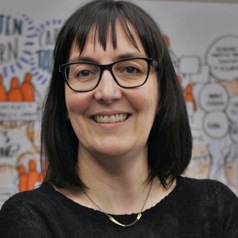
Diane Crocker
Professor, Department of Criminology, Saint Mary’s University
Diane Crocker holds a Ph.D. in Sociology from York University. Her research areas include restorative justice, rape culture, gender-based violence, criminal harassment, and the use of law to address social problems, particularly those that disproportionately affect women. She has worked on projects in the following areas:
Restorative justice in youth criminal justice, prisons, and schools.
Program evaluation and participatory research processes
Domestic violence policies and intervention programs;
Sexual violence on university campuses
Justice values among victims/survivors of gender-based violence
Less ![]()
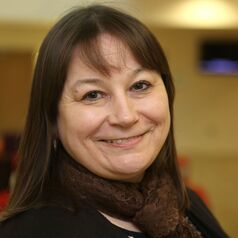
Diane Holt
Chair in Entrepreneurship, Leeds University Business School, University of Leeds
Diane Holt is a Professor at Leeds University Business School and holds the Chair in Entrepreneurship. Her research is particularly focused on social purpose ventures, the informal economy and the communities they benefit within sub-Saharan Africa. She also explores values chains in informal and rural communities with recent work set in the sustainable development reserves of the Brazilian Amazon.
Less ![]()

Diane Rohlman
Associate Dean for Research, Professor and Endowed Chair of Rural Safety and Health, University of Iowa
In her work, Rohlman, Associate Professor in the Department of Occupational and Environmental Health at the University of Iowa College of Public Health, has collaborated with researchers from Brazil, Thailand, the Philippines and elsewhere. One of those collaborations has taken her to Egypt, to examine the health effects of organophosphorus pesticides on young Egyptian field workers.
Rohlman received both her master’s and Ph.D in experimental psychology from Bowling Green State University in Ohio. Her early research examined the impact of low-level occupational exposure to organophosphorus pesticides in adult and adolescent farm workers in Oregon. Young workers are less likely to recognize hazards, be less aware of their legal rights and more reluctant to speak up regarding safety, putting them at increased risk for occupational injuries. They also often engage in behaviors that may increase their risk of injury, such as sleep deprivation, substance use and distracted work behaviors.
Her research was later extended to examine environmental pesticide exposure among children living in agricultural communities. Since many chemicals can attack the brain and nervous system, having methods to assess memory, attention and learning can be used to identify early deficits.
While she has been actively involved in research on five continents and more than 10 countries, Rohlman, who served as director of the Agricultural Safety and Health Training Program in the UI’s Heartland Center for Occupational Health and Safety, also offers training closer to home. The center provides graduate training programs in Industrial Hygiene, Occupational Medicine, Ergonomics, Occupational Epidemiology, Occupational Injury Prevention, and Agricultural Safety and Health.
Rohlman also serves as the Director of the UI’s Healthier Workforce Center for Excellence, a NIOSH Total Worker Health Center of Excellence. The Center focuses on promotion of safety, health, and well-being among working populations. She has mentored undergraduate, graduate and postdoctoral trainees.
Less ![]()
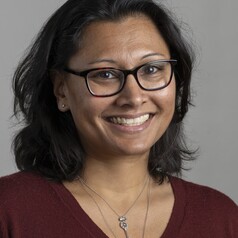
Diane Sivasubramaniam
Associate Professor and Chair, Department of Psychological Sciences, Swinburne University of Technology
Diane Sivasubramaniam is Chair of the Department of Psychological Sciences at Swinburne University. She is currently Director of the Social Psychology of Innovation (SPI) Research Group at Swinburne, and leads (with Dr. Sam Wilson) the Public Interest Technology Research Program in Swinburne University’s Social Innovation Research Institute. Diane was awarded her PhD from the University of New South Wales in 2006. Before moving to Swinburne University, she completed Postdoctoral Fellowships at John Jay College of Criminal Justice and Barnard College, Columbia University, and was an Assistant Professor at the University of Ontario Institute of Technology (UOIT) in Canada. Diane's research focuses on the social psychology of procedural and distributive justice.
Less ![]()
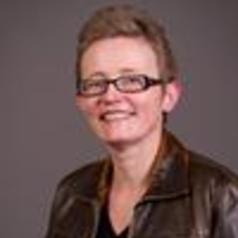
Diane Watt
Professor of English, University of Surrey
Diane Watt is professor of English literature at the University of Surrey and the author of God’s Own Gentlewoman: The Life of Margaret Paston (Icon, 2024). She is the Co-Editor in Chief of The Palgrave Encyclopedia of Women Writers in the Global Middle Ages.
Diane works on medieval literature, women’s writing, gender and sexuality. Her books include Medieval Women’s Writing (2007), Amoral Gower (2004) and Secretaries of God (1997). Here most recent journal article, 'The Earliest Women's Writing?', is available as a free download at http://www.tandfonline.com/doi/full/10.1080/.U4y3MChigTM.
Less ![]()
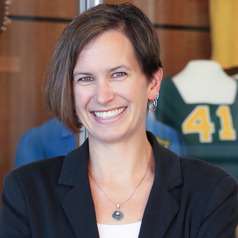
Diane Williams
Assistant Professor of Kinesiology, McDaniel College
I study social, cultural, and historical elements of sport and physical activity in the United States, with particular interest in the workings of power, gender, ideologies, and hidden histories.
Less ![]()

Dianne Berg
Visiting Assistant Professor of English, Clark University
Dianne Berg specializes in late medieval and early modern English literature. Her research focuses on representations of domestic violence and the literary appropriation of real-life scandals to address contemporary anxieties about treason, obedience, gender, religion, and the state.
Professor Berg’s work has appeared in Borrowers and Lenders: The Journal of Shakespeare and Appropriation; Out of Sequence: The Sonnets Remixed (Parlour Press); Treason: Medieval and Early Modern Treachery, Betrayal, and Shame (Brill); and Medieval and Early Modern Murder: Legal, Literary, and Historical Contexts (Boydell). Recent course offerings at Clark University include “Medieval Women's Voices,” “The Arthurian Tradition,” "Chaucer's Canterbury Tales"; "The Secret Life of Books," and "Pulp Non-Fiction: Representations of Domestic Crime in Early Modern England."
Less ![]()
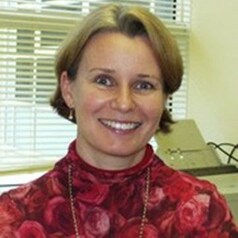
Dianne Campbell
Professor, Child and Adolescent Health, Faculty of Medicine and Health,, University of Sydney
Professor Dianne Campbell leads the NACE Training & Innovation Hub, which will support and mentor the next generation of allergy experts through six competitive PhD scholarships and four competitive post-doctoral fellowships.
Prof Campbell is an academic Clinical Paediatric Immunologist, with 28 years experience in clinical allergy and immunology. She completed a PhD at the University of Melbourne and subsequently held a postdoctoral position at Stanford University. Prof Campbell served as Chair of Allergy and Clinical Immunology at the Children's Hospital Westmead/Sydney University (2010-2019). She is an author of more than 150 peer-reviewed manuscripts and has a h-index of 44.
She has led randomised controlled trials in peanut and egg allergy – the most common cause of food allergy in Australian children. She is a Chief Investigator in NHMRC clinical trials, including OPIA, PrEggNut and OPTIMUM, and is a Chief Investigator in the NHMRC funded Centre for Food & Allergy Research, hosted at the Murdoch Children's Research Institute.
She has played major roles in the creation of national prevention of food allergy guidelines, standardisation of food challenges and anaphylaxis education and training for schools and childcare, serving as Chair of the Paediatric Subcommittee for Australian Society for Clinical Allergy and Immunology (2010-2016).
Prof Campbell also has extensive experience overseeing and developing paediatric graduate and postgraduate curriculum, previously serving as the Head of Paediatrics and Child Health, Sydney Medical School. She has recent biotechnology experience in her role as SVP, Clinical Development and Medical Affairs at DBV-technologies.
Less ![]()

Dianne Vella-Brodrick
Professor and Gerry Higgins Chair in Positive Psychology, Centre for Wellbeing Science, The University of Melbourne
Professor Dianne Vella-Brodrick (PhD) holds the Gerry Higgins Chair in Positive Psychology and is Director and Head of Research at the Centre for Wellbeing Science at the Melbourne Graduate School of Education, University of Melbourne. She is the inaugural Director of the Master of Applied Positive Psychology program (2013 – 2015) and is a registered psychologist and a Member of the Australian Psychological Society and College of Health Psychologists. She founded the Positive Psychology Network in Australia and has previously served as Treasurer and Secretary of the International Positive Psychology Association (IPPA) and is currently on the IPPA Council of Advisors and was made an IPPA Fellow in 2019. Dianne has been an inaugural Editor in Chief of the Psychology of Well-Being:Theory, Research and Practice journal (2011-2016) and has Co-Directed the 2008, 2010 and 2014 Australian Positive Psychology and Well-being Conferences. She serves on numerous research advisory boards, regularly reviews scientific papers for leading journals and has received over $3 million funding for her research. Dianne’s research interests include the development and evaluation of well-being programs, particularly in the areas of positive education and performance optimisation. Her work draws on innovative mixed method designs which utilise the latest technology, experience sampling method and biological indices of well-being. Dianne served as the Ethics Chair at the Melbourne Graduate School of Education from (2014 - Feb 2020). She has been involved in the development of numerous well-being measures and programs including the Wuzzup and MoodPrism apps, the Wellbeing Profiler and more recently she founded the Bio-Dash wellbeing and optimal performance program (bio-dash.com).
Less ![]()
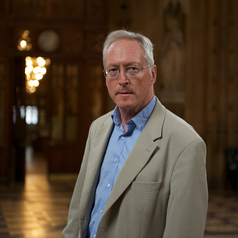
Diarmaid MacCulloch
Professor of the History of the Church, University of Oxford
Diarmaid MacCulloch holds a Cambridge doctorate in History, an Oxford Postgraduate Diploma in Theology and an Oxford Doctorate of Divinity. He is a Fellow and current Vice-President of the British Academy. His new book All Things Made New: Writings on the Reformation is being published in July.
He has written extensively on Tudor England; his biography Thomas Cranmer: a Life (Yale UP, 1996) won the Whitbread Biography, Duff Cooper and James Tait Black Prizes. More recent publications from Penguin/Allen Lane have included Reformation: Europe's House Divided 1490-1700 (appearing in the USA as The Reformation: a History), and A History of Christianity: the First Three Thousand Years (in the USA, Christianity: the First Three Thousand Years), which won the 2010 Cundill Prize; his latest book is Silence: a Christian History.
He was the presenter on BBC4 and BBC2 of "A History of Christianity - the first 3,000 years", which won the Radio Times Listeners' Award in 2010, "How God made the English" (BBC2, 2012) and "Henry VIII's fixer: the rise and fall of Thomas Cromwell" (BBC2, 2013); his BBC2 series Sex and the West aired in spring 2015.
He received a knighthood in January 2012 for services to scholarship.
Less ![]()
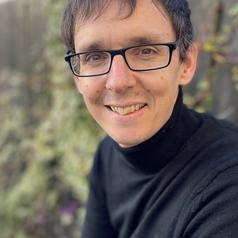
Diarmid Finnegan
Reader in Human Geography, Queen's University Belfast
My research interests include the cultural history and geography of the life and earth sciences, with a particular emphasis on religious responses to scientific developments in the nineteenth and early twentieth centuries. My earliest work examined the reception of glacial theory in Victorian Edinburgh, investigated the historical geographies of Scottish natural history societies in the period 1831-1900 and, with Charles Withers and Rebekah Higgitt, explored the role of geography in the work of the British Association for the Advancement of Science from 1831 – c.1933. My book on natural history societies in Victorian Scotland was published by Pickering & Chatto in 2009 and was awarded the Frank Watson Book Prize for Scottish History in 2011. In 2014, I completed a two-year AHRC-funded project on science in nineteenth-century Belfast. I have also written about the mix of metaphysics and science in the writings of the geologist James Croll and the reception of ideas about human evolution in the context of religious debates about the creation of Eve (rather than Adam). More recent work has centred on public speech as a situated mode of interaction between science and culture in the nineteenth century. A monograph on this subject examining the lecture tours of five British celebrity scientists in Gilded Age America published by the University of Pittsburgh Press has recently appeared. With Professor David N. Livingstone, I have now completed a 27 month project investigating debates about evolution and theology in the early twentieth century. This is part of a larger John Templeton Foundation-funded project on conjunctive explanations in science and religion (CESAR). I am currently at the early stages of writing a biography of Scottish evolutionist and evangelist, Henry Drummond.
Less ![]()
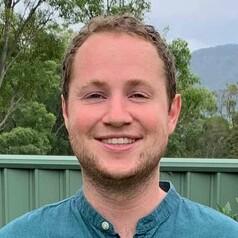
Diarmuid Hurley
Lecturer, Faculty of Health, Southern Cross University
Diarmuid Hurley is a lecturer in leadership in healthcare and sporting settings, based at Southern Cross University. He holds a PhD in Psychology and a Masters in Sport and Exercise Psychology. His research interests include sport, exercise, and performance psychology, health psychology, and novel methods of mental health promotion and prevention in communities.
Less ![]()
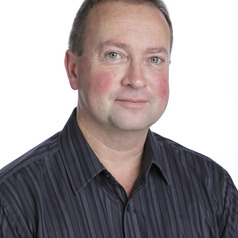
Diarmuid Scully
Lecturer in medieval history, University College Cork
Diarmuid Scully devised the first module on LGBT history to be taught in an Irish university in 2018, the 25th anniversary of the decriminalisation of homosexuality in the Republic.
The study of LGBT Irish identities on the island of Ireland is an emergent research area with huge potential. Modern Ireland, North and South, has seen many transformations, but few as dramatic as the change in the perception and status of LGBT people.
The module explores the experiences of LGBT people and the shaping of LGBT identities in Ireland from the 1970s to 2022 via activists’ testimonies, LGBT rights promotional materials, media reports, personal accounts, and creative productions including songs, poems and the visual arts. These sources are located and analysed in their historical contexts. The module also asks how, and to what extent, Irish LGBT issues have been analysed by historians.
My research interests focus on representations of Ireland, its inhabitants, and wonders in a wider archipelagic context in Antiquity, the Middle Ages, and the Early Modern era. I am interested in Classical ideas concerning Britain, Ireland, and their surrounding seas, and the shaping of those ideas by Graeco-Roman world-geographical and ethnographical thought and the demands of Roman imperialism. The analysis of the long-term legacy of these concepts, topoi, and stereotypes dominates my current research. I am investigating their transmission to the early Insular world and adaptation and subversion by Insular authorities, and the response of twelfth to seventeenth century English and other textual and visual sources to both Classical and early Insular interpretations of Irish and archipelagic history, culture, geography, and marvels.
My research interests converge in a monograph in preparation, The Bull of the Herd: Giraldus Cambrensis and the Invention of Barbarian Ireland. This is the first full-length study of Gerald of Wales's Irish writings since 1662. Gerald of Wales's Topography of Ireland (1188) dominated discourse on Ireland from the late 12th to the 17th centuries. I am examining the work in relation to the Classical and Early Insular sources as well as 12th century views of European peripheries, and considering its impact on Early Modern perceptions of Ireland.
Less ![]()
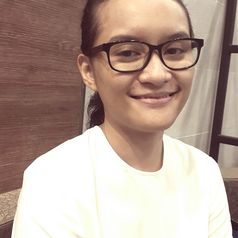
Diatyka Widya Permata Yasih
Diatyka is a lecturer at the Department of Sociology, Faculty of Social and Political Sciences, University of Indonesia. She is also an executive secretary and a research associate at Center for Sociological Studies, University of Indonesia. Her current research project is on young precarious workers who join vigilante groups in urban Jakarta.
Less ![]()

Dickson Kanakulya
Lecturer, Makerere University
Holds a Ph.D. (Makerere), Licentiate (Linköping), M.A. Philosophy (Bergen) and B.A. (Makerere).
Less ![]()
- Market Data





















